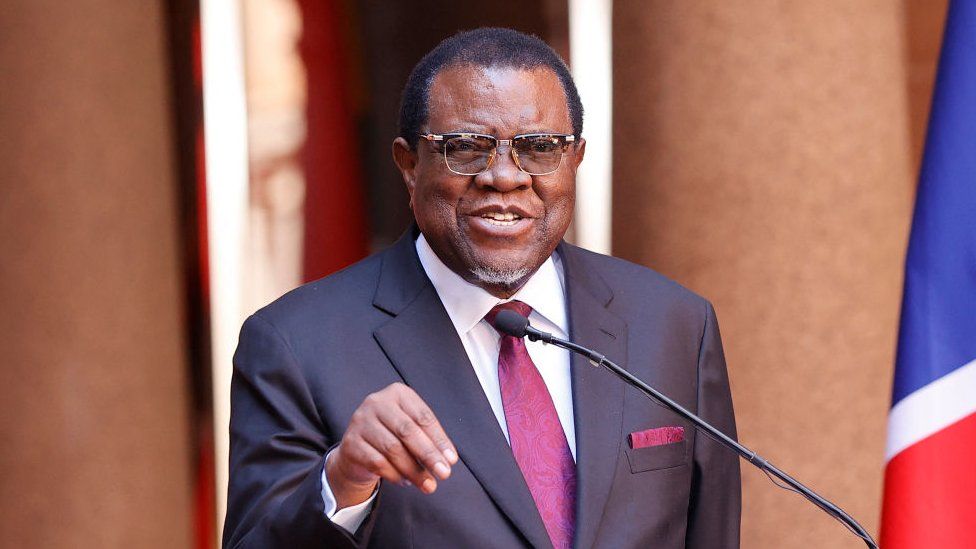Hage Geingob, the man who rose from a remote village to become Namibia’s longest-serving prime minister and third president, passed away on Sunday at the age of 82.
His life, etched by exile, activism, and ultimately controversy, leaves a complex legacy for the nation he helped liberate.
Born in 1941, Geingob’s early years were marked by the shadow of apartheid. His resistance began in his school days, leading him to a near three-decade exile across Botswana and the US. In those years, “Danger Point,” as he was nicknamed for his football prowess, became a tireless advocate for Namibian independence. He studied at Fordham University, represented SWAPO at the UN, and never silenced his voice for liberation.

Returning to a newly independent Namibia in 1989, Geingob embodied hope and unity. He served as prime minister for 12 years before ascending to the presidency in 2014. His calm demeanor and seemingly reassuring figure resonated with many.
However, Geingob’s legacy is not without shadows. His first term was marred by economic woes, with “Fish Rot” – a corruption scandal involving fishing quotas – becoming a stain on his administration. Critics accused him of favouring foreign firms and bloating the government, eroding some of the initial trust.
Despite a weakened reputation, Geingob secured a second term in 2019. But his declining health saw him step down early in 2023, leaving behind a complex picture.
As Namibia mourns its leader, many are left grappling with the contradictions. Was he a hero of the liberation struggle tarnished by scandal, or a well-intentioned leader tripped by unforeseen challenges? Only time will tell how history will judge Hage Geingob, but one thing is certain: his story is intricately woven with the fabric of Namibia’s journey.


